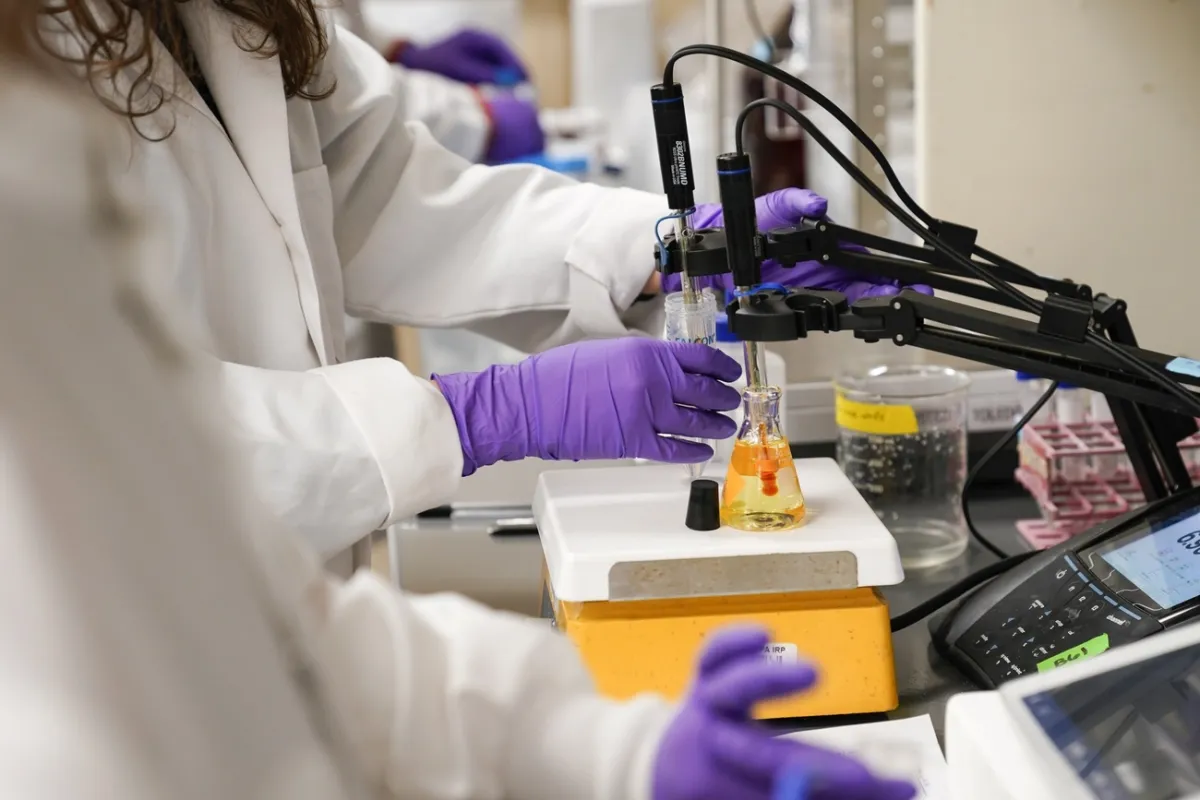
Switzerland Ends Study On Exposure To PFAS And Pesticides To Cut Costs
+Get the most important news from Switzerland in your inbox
The Swiss Health Study was large-scale: 100,000 volunteers between the ages of 20 and 69 were to take part, representatively compiled according to age, gender and region. The volunteers' urine and blood were to be regularly tested for pesticides, PFAS chemicals, heavy metals and other substances for at least 20 years. Their health and lifestyle, and the environmental pollution in their region of residence, would also have been documented.
The expectations were high:“We hope to find out the relationship between people's illnesses, their behaviour and possible exposure to pollutants,” said project manager Natalie von Götz at the health office early last year.
More More 'We must break the taboo that 'forever chemicals' are indispensable'This content was published on Oct 13, 2023 Synthetic PFAS chemicals are in everything from non-stick pans to clothing. But regulating these persistent substances is complex.
Read more: 'We must break the taboo that 'forever chemicals' are indispensableIn response to an enquiry, the public health office wrote that it had examined whether third parties could co-finance the study. However, this proved to be difficult due to the legal framework.
'A huge missed opportunity'Carlo Largiadèr speaks of a major missed opportunity. The associate professor of pharmacogenetics at the University of Bern was part of the four-person management team for the pilot study for the Swiss Health Study.“New substances are constantly coming into circulation, but there is a lack of observational data. The data from the health study would have been valuable for policy and prevention,” says Largiadèr.
The decision to cut costs has been criticised by Green Party health politician Manuela Weichelt:“The question arises as to what is more beneficial: investing money in research or paying for the consequential damage caused by chemicals through health insurance premiums and losing human lives prematurely,” says the parliamentarian. The Greens want to fight in parliament to ensure that money is made available. The gaps in knowledge are too great, they believe.
+ PFAS-contaminated meat still sold in eastern Switzerland
The public health office agrees. We are constantly in contact with many chemicals, it writes on the Swiss Health Study website, which is still online:“[However] we have no precise data on how large the quantities are in the body and what impact this has on our health.”
Pilot study showed PFAS in all blood samplesIn all, 789 volunteers from the cantons of Vaud and Bern took part in the pilot study for the now discontinued health study; PFAS chemicals were detected in all blood samples. A health-relevant threshold value was exceeded in 3.6% of the samples.
The findings of the pilot study are available to everyone, writes the health office, adding:“Unfortunately, this knowledge will not be supplemented for the time being by findings that could be obtained with a long-term study.”
What is your opinion? Join the debate:
External ContentTranslated from German with DeepL/gw

Legal Disclaimer:
MENAFN provides the
information “as is” without warranty of any kind. We do not accept
any responsibility or liability for the accuracy, content, images,
videos, licenses, completeness, legality, or reliability of the information
contained in this article. If you have any complaints or copyright
issues related to this article, kindly contact the provider above.


















Comments
No comment